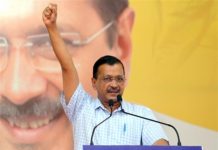 Indians see life insurance as the most handy instrument for planning their major life goals while nearly a third do not have any idea about how much insurance they need, a survey has found. Life insurance is the top instrument for life goals such as building a house (43 per cent), children’s education (38 per cent), retirement (49 per cent) and legacy creation (50 per cent), the survey by Exide Life Insurance said.
Indians see life insurance as the most handy instrument for planning their major life goals while nearly a third do not have any idea about how much insurance they need, a survey has found. Life insurance is the top instrument for life goals such as building a house (43 per cent), children’s education (38 per cent), retirement (49 per cent) and legacy creation (50 per cent), the survey by Exide Life Insurance said.
When it comes to planning for child’s marriage, they look at fixed deposits in addition to life insurance, the survey revealed. It also finds that 30 per cent respondents admitted that they do not have any idea about how much life insurance cover is required, pointing towards the glaring protection gap among Indians.
Around 46 per cent of surveyed feel that they should have a cover of at least 10 times their annual income but only 29 per cent of individuals have such cover, it said. The digital survey ‘Exide Life Insurance 2018 Money Habits’ covered respondents from 12 cities including metros and emerging tier II cities with an intention to understand how life insurance owners/intenders look at dealing with their money.
Through the various subsections of the survey, it is made evident that Indians seldom cover the entirety of financial responsibility. Survey brings to light that as an income earner of the family, Indians are inclined towards just earning, saving and to an extent investing for life goals, the survey said.
Life insurance penetration in India stands at less than 3 per cent in comparison to other developing countries and despite the thrust on financial literacy by government as well as the insurance industry, people still struggle to gauge the level of protection required to themselves and their family, it said.
A separate study by Future Generali India Life Insurance Company Limited and Market Xcel — Market Agency Research in India points out that Indian fathers in their characteristic way are more worried about their child’s future than their own health.
A sample size of 1,319 respondents with an average age of 35 years were surveyed across seven cities. A majority of the people surveyed had a graduate degree and had a household income with more than Rs 5 lakh.
The study, which comes ahead of Father’s Day, finds that in the pursuit of achieving their financial goals, dads are making their health take a backseat. As per the study, only 19 out of 100 fathers surveyed place their health as the topmost priority. At the same time, 49 out of 100 fathers are under work stress most of the times, which is taking a toll on their health.
It also revealed that 68 per cent of Indian fathers are working 6 days in a week. Further, the average working hours are 7-9 hours for 55 per cent of fathers. With changing lifestyles, fathers are concerned about their health but feel they are not able to do enough about it. Consequently, they feel fatigued and tired regularly. Vacation with family and outing with friends are seen to be most preferred solution to overcome work related stress.
Interestingly, nearly half of the respondents have health insurance at an overall level. The penetration of health insurance is low in cities like Kolkata, Delhi, and Lucknow.
Rakesh Wadhwa, Chief Marketing Officer, Future Generali India Life Insurance Company commented, “Through this study, we wanted to understand life’s priorities of Indian fathers and their health habits. While health is one of most talked about subjects in families, our fast-paced lifestyle is increasingly taking away personal time from us. Young fathers who neglect their health are far more prone to lifestyle diseases and work-related stress than ever before. As the study indicated, fathers often end up sacrificing their own health goals while providing the best for their children. We believe that health is your true wealth and therefore, it should be prioritised over any other financial goal you may wish to achieve in life.”
As most of the people are engaged in private/service sector they are often under work stress. For example, in metros like Mumbai, 62 out of 100 respondents feel under work stress most of the time. In non-metros like Jaipur, 58 out of 100 respondents reel under work stress most of the time.
About 46 per cent of survey respondent expressed that time is a major constraint they face to achieve health and wellness goals. Also 85 per cent of father’s feel that their careers don’t allow them to have a work-life balance.
Good nutrition plays a pivotal role in maintaining a healthy lifestyle and the study found that 75 per cent pay attention to what they eat. Young fathers prefer to follow diet plans and getting adequate sleep to maintain good health. Surprisingly, having a fitness routine and following a regular work-out regime was not the top choice. 36 per cent feel it is expensive to maintain a healthy lifestyle.
A hectic lifestyle has paved way for stress, fatigue, and neglected health. There is a widespread understanding of benefits of healthy living; however, fathers are neglecting the need to take actions that will positively impact their health in the longer run.
In a separate development, the Federation of Indian Chambers of Commerce & Industry has urged the government needs to increase foreign direct investment cap in the insurance sector and multi-brand retail trading for products manufactured and sourced from India for attracting overseas inflows.
“In line with 100 per cent FDI in food retail, a similar policy could be considered for multi-brand retail in products that can be fully manufactured in and sourced from India,” Ficci said in its pre-Budget suggestions to the government. It said that in the insurance sector, FDI cap can be increased from 49 per cent to 74 per cent.
“To increase FDI flows in this sector, the clause pertaining to Indian management and control needs to be relooked. Reinsurance sector FDI can be restricted to 49 per cent with Indian management and control,” it said, adding that there is a need to improve investor confidence about the surrounding ecosystem in the country to attract more FDI inflows. “Enforcement of contracts and arbitration process needs to be strengthened. Even when awards have been given, enforcing the awards remains a challenge,” it said.
Further it said that India’s new Bilateral Investment Treaties (BITs) with several countries are still to be renegotiated. “Having in place BITs enhances the confidence level amongst foreign investors,” it said.
letters@tehelka.com












